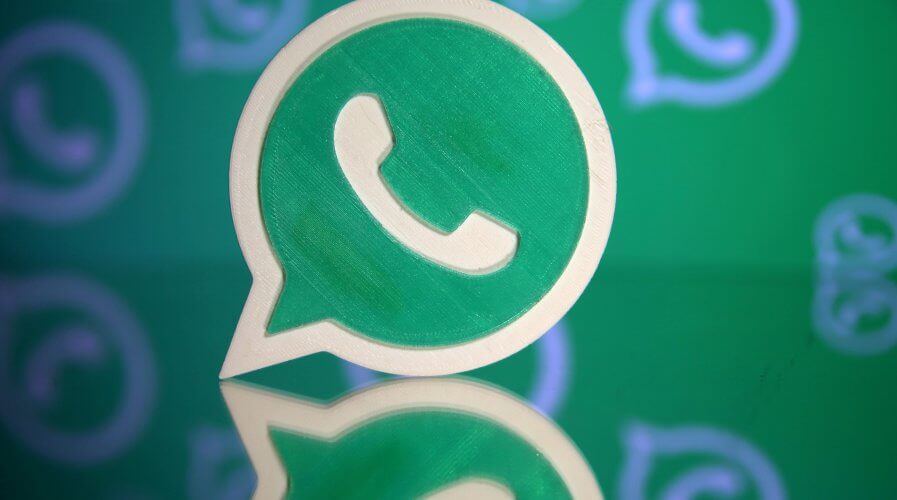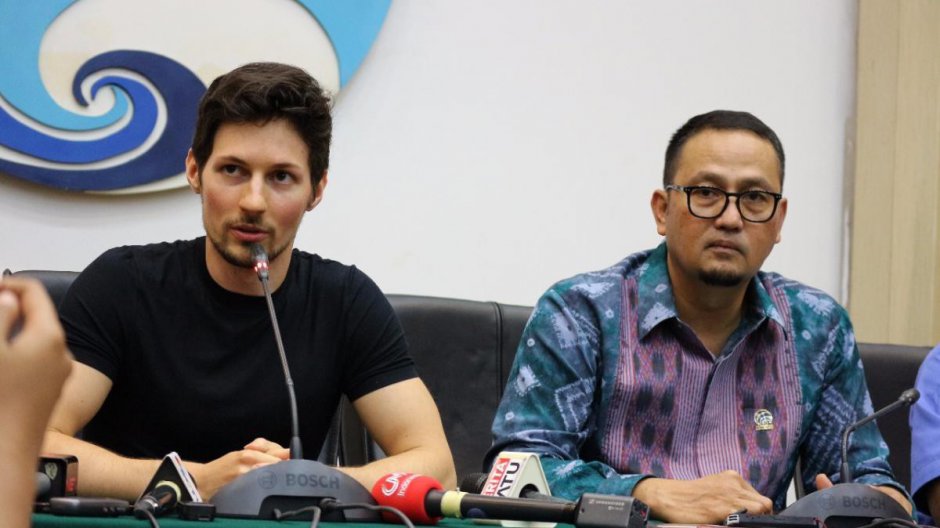
A 3D printed Whatsapp logo is seen in front of a displayed Whatsapp logo in this illustration. Source: REUTERS/Dado Ruvic
Indonesian regulators threaten to block WhatsApp over obscene GIFs
INDONESIA has threatened messaging service WhatsApp with expulsion if the service does not act to remove obscene GIFs from its platform within the next 48 hours.
GIFs are popular form of messaging among netizens that lies somewhere between a short video and a photograph. The stutter-stop moving pictures are widely used across social media platforms, and are being integrated across more and more systems.
However, according to Indonesia’s Communications and Informatics Ministry, the service is being used to spread content on topics banned in the country’s Internet space. Based off of research by Tor Project, a non-profit company that creates Web browsing tools, Indonesia’s Internet is partly censored, including ones that criticize Islam, offer dating services and sex education.
The Indonesian Consumers Foundation (YLKI) had urged the Communications Ministry to block pornographic GIF images accessible via emoticons, complaining that children could easily reach them, according to news website kompas.com.
WhatsApp said that control over what GIFs users send is largely out of their hands, as their message encryption prevents them from monitoring the files. The company relies on third-party services, such as Giphy, Tenor and G Board which are directly integrated into the service, to supply the GIFs, many of which tend to be user-created.

The company, according to Reuters, said they directed the government to work with these providers instead, but government officials hit back, saying that WhatsApp should be the party in charge.
“They have responded, but asked us to speak directly to the third party,” the Communications and Informatics Ministry director-general Semuel Pangerapan said, according to Reuters.
“The GIFs appeared in their apps. Why do we have to be the one speaking to the third party? They are supposed to be the ones managing it.”
He said that WhatsApp has to “follow the rules of the host” country, adding that the company has been alerted to the ministry’s concerns through three previous letters on the issue.
Indonesia has a sometimes-rocky relationship with the various Internet services within its borders. The country has at various points blocked access to popular platforms such as Tumblr and Vimeo, while messaging platform Telegram was accused of being home to “radicals and terrorist propaganda”. Each company reached settlements with the government and had their bans rescinded.
Indonesia is home to one of the biggest demographics in WhatsApp’s user demographics, and being ousted could be devastating for the platform.

On their part, some of the third-party platforms are responding to the criticisms by offering fixes to their platforms. Tenor Inc., one of WhatsApp’s partners, said it was looking to release a “fix” to the issue. Tenor spokesman Jennifer Kutz said Tenor “regularly” worked with “local entities to make sure our content reflects the cultural mores and legal requirements.”
In a statement, Kutz said Tenor would “address the content issues raised by the Indonesian government within the next 48 hours”.
“In the case of WhatsApp, we’re taking on this responsibility,” Kutz said in an email to Reuters.
Giphy – who did not respond to requests for comment – has previously been blocked by the Indonesian government for its gambling-related ads. The company does, however, offer a filter option for its partners. Indonesia’s warning did not appear to target Gboard, a keyboard app developed by Google that provides comparable GIF search results but must be installed separately from WhatsApp on most devices.
Additional reporting by Reuters
READ MORE
- Strategies for Democratizing GenAI
- The criticality of endpoint management in cybersecurity and operations
- Ethical AI: The renewed importance of safeguarding data and customer privacy in Generative AI applications
- How Japan balances AI-driven opportunities with cybersecurity needs
- Deploying SASE: Benchmarking your approach






